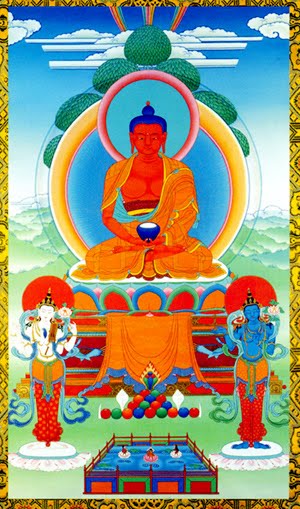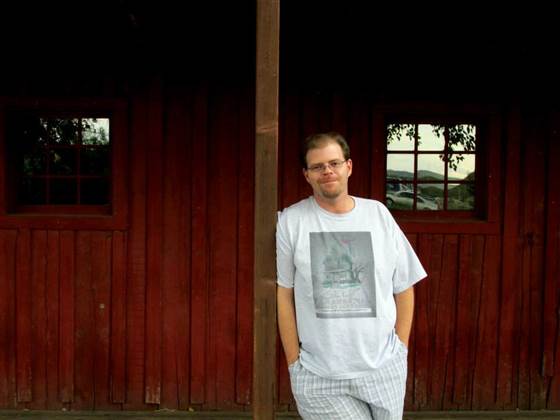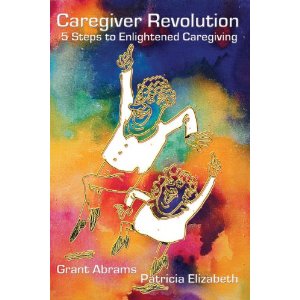A Review of two Tibetan texts; The Bardo Guidebook, by Chokyi Nyima Rinpoche and Training the Mind in the Great Way by Gyalwa Gendun Druppa, the First Dalai Lama.
Both of these books are based on teachings which were passed down from antiquity by oral transmission and then recorded in various ways and both have as a vital part of their content references to death and dying, for this aspect of existance is not ignored by the Tibetans but rather used and studied with an eye to the greater teachings. It is this aspect of the texts that I will review, to discover any underlying themes that might be of use to those working in the field of death and dying.

The Bardo Guidebook The Bardo is a magical place, the place where we find ourselves at any time, but not a place we can normally see with our “normal” scattered attention. Realization of the bardo takes a more fully collected intensified awareness. Given the whole span of time, existence and dimension (including sleeping and dreaming), here we are at this particular place, but are we really here? Placing full attention on our present situation, with no distractions, can we determine where we are? Are we at the place between birth and death, in a dream, or in luminosity? Perhaps we have just died? These are all possibilities in the Tibetan teachings, but the operative phrase to realizing where we are is “full attention.” We spend most of existence operating with only a fragment of our awareness, and the bardo will not become apparent this way. Hence, bardo training is attention training, and many of the practices are designed to free up and focus energies which are normally scattered.
Two prominent chapters in this rather amazing book are “The Painful Bardo of Dying,” and “How to Die.” The process of passing away usually involves pain and suffering especially at the moment of the interruption of the life force. But for the more advanced practicioner this does not effect the practice of staying in a state of luminosity at the time of death. For lesser adepts, it is beneficial to hear the readings from the Bardo Thodol, or Liberation Through Hearing in the Bardo (The Tibetan Book of the Dead) to keepthe Clear Light practice strong in spite of the discomforts.
Though much information is given about indications of death, and various signs and symptoms, the major point of these two chapters is that only through practicing selflessness and meditation can one prepare for dying and the bardo of death. The level of practice and focus we are capable of right at this very moment is what we can expect at death. Here and now is the place to start; first by realizing just how distractable we are, then considering in a more realistic way the eventuality of our own death and making efforts to collect the attention. Book is available here for free, with the following description:
Description: Existence is an endless cycle of experience called the four bardos. These four periods include our present life, the process of dying, the after-death experience, and the quest for a new rebirth. Drawing from his intimate knowledge of the innermost Vajrayana teachings, the Tibetan master Chokyi Nyima Rinpoche presents in The Bardo Guidebook straightforward, direct instructions on how to deal with the four bardos.

Training the Mind in the Great Way is a treatise by the first Dalai Lama, composed in the 14th century. It is an elucidation of the Lojong Teachings, originally brought to Tibet by Atisha from the great Indonesian teacher, Serlingpa. Lojong means mind (Lo), and transform or train (jong), and generally it means training the mind in the Bodhisattva ways of loving kindness, compassion, tolerance, inner strength, exertion and compassion To enter the path of Bodhisattva training, one must be convinced that this human life is precious and also that death is certain. Without these two things, it will be very difficult to practice with sincerity, for interests and pleasures are certain to distract one. The meditations on death are threefold.
• Death is certain.
• The time of death is uncertain.
• Only spiritual wealth is of any use to us at death.
Meditating on these 3 aspects one loses interest in ephemeral things and “becomes a fit vessel for the teachings.” Now he/she can hear the actual instructions. They are very clearly spelled out and explained in the text and I won’t enumerate them except to say that the first stage of the practice is cultivating a mind that is concerned for the welfare of others.
So we see that here are two texts with different angles on their approaches to liberation. In both cases however, the contemplation of death will intensify practice to concentrate the attention and open up the heart to compassion.








